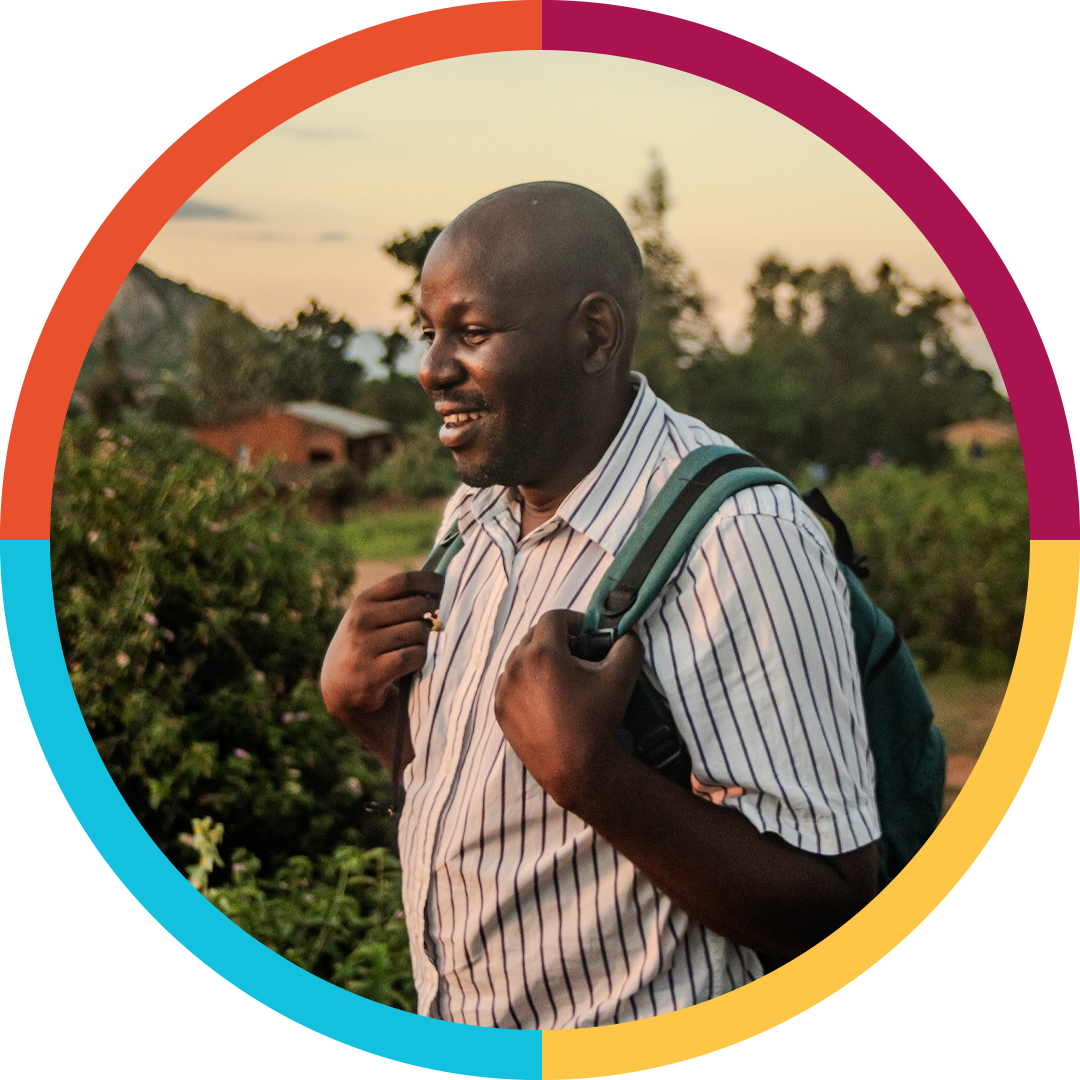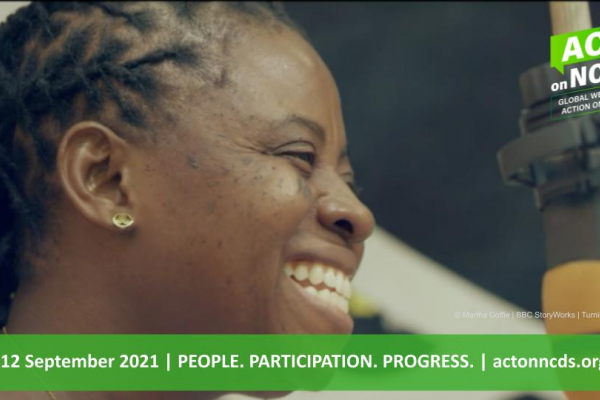The international community has increasingly begun to recognize the value of ‘meaningful youth engagement’ within the development space. Important elements include intentional engagement, levelling power-dynamics, improving health outcomes through youth inclusion within program/ policy design, and youth-led activities to catalyze action. The NCD Child Young Leaders Program plays a pivotal role in positioning youth advocates and leaders within the non-communicable diseases (NCDs) space, providing opportunities and pathways to meaningfully engage youth. For the Global Week of Action on NCDs, we, the NCD Child Young Leaders working group on youth living with NCDs (YLWNCDs), reflect on our engagements within the development space and the interactions we have through our work with patients and communities.
“ Meaningful youth engagement is very abstract and elusive. While I am fortunate to have a platform to share my views as a young leader, it does tend to have an exclusive and privileged element,” Alex Kwok, YLWNCDs Group Member
When unpacking the discussions opening statement by Alex Kwok, we soon realized that the term ‘engagement’ alone could have multiple meanings and occurs through different pathways. The notion of ‘engagement’ can exist at different levels (global, regional, national) and operate within different systems or even depend on diverse stakeholders (political, civil society, research, and the private sector). Engagement at each level and system is key to which unique barriers exist for youths and patients such as YLWNCDs.
Joab Wako, a well-known and outspoken youth advocate from Kenya and YLWNCDs group member, recalled his experience engaging with international civil society organizations, primarily through training. He highlighted that while the workshops were helpful and centred around technical skills such as how to write proposals, these were one-off and one is often unsure where and how to apply the training at a practical level. We collectively reflected how the civil society arena is supportive and provides enabling environments and mechanisms for engagement; however, we agreed that we are engaged more as ‘beneficiaries’ than partners and there is a need to shift along the continuum. In order to bolster partnerships and beyond mere speaking or training opportunities, youth need to play roles in program design and implementation i.e. the space to lead on technical issues, beyond stipends, there is a need for youth to be absorbed into the workforce or projects as paid technical experts.
“ Having served in various political roles throughout my career, I find the political space the toughest to navigate as an activist, it takes a lot of perseverance and strength,” Dr. Shakira Choonara, YLWNCDs Group Member
Alex offered valuable insights into his work as a researcher with the organization Arthritis Research Canada (ARC) which offer lessons for meaningful youth engagement. ARC established the “Arthritis Patients Advisory Board'' which is composed of volunteers living with different types of arthritis who bring their personal experience and knowledge to research and decision making. ARC’s goal is to ensure that the patient perspective is represented and streamlined within research projects related to prevention, treatment, and self-management of arthritis.
We round up our discussion on what it means to engage YLWNCDs, and opened up that engagements are not always easy, it is emotionally taxing.
“ We are invited to spaces that can bring change and are expected to be vulnerable and tell our stories as a means of engagement. People do not realize how terrifying it is to open up, the stigma and discrimination we have faced living with a chronic condition make it difficult to speak up and tell our stories,” Joab Wako, YLWNCD Group Member
“ Among the many youth stories that I have come across, stigmatization stands out as a problem. Stigma is experienced in families, schools and even workplaces. This has led to some children and their parents not engaging and hiding chronic conditions in fear of rejection in schools and other social groups,” Anita Bulindi, YLWNCD Group Member
In sum, there is some progress as the civil society space is beginning to engage youth through speaking/ stakeholder engagements, training, and mentorship opportunities. Our call to action for this Global Week of Action on NCDs 2021
- It is unacceptable to continue one-off engagements with YLWNCDs to share their stories, without any further support for advocacy
- Global health organizations must allocate a certain percent budgets/ financing to meaningful youth engagement. Global health organizations including regional communities and national governments need to move beyond beneficiary centred programming for youth and ensure that youth are actively engaged in program (a) design (b) implementation (c) monitoring and evaluation
- Global health organizations must have youth engagement policies in place ensuring inclusivity and diversity
- Youth must be engaged in governing or decision-making bodies, institutionalized youth quota’s must be set and implemented, youth must have key leadership roles or responsibilities and operate within supported environments
- Youth voices are shared and values and there must be room to co-create and collectively advocate on a mutual NCD agenda
This September, we are gathering the voices of YLWNCDs and care-takers to be part of our #StandUp #SpeakOut Campaign, please do fill out this short survey if you are interested in participating! https://harvard.az1.qualtrics.com/jfe/form/SV_8prpvOTlxprwdLw
Young Leader contributors: Anita Bulindi, Dr. Apoorva Gomber, Dr. Shakira Choonara, Alex Kwok, Joab Wako
About NCD Child
NCD Child is a global multi-stakeholder coalition championing the rights and needs of children, adolescents, and young people who are living with or at risk of developing non-communicable diseases (NCDs). NCD Child aims to ensure that child and adolescent health is comprehensively considered and addressed for NCD prevention and control, and that it remains a priority for national governments, civil society organizations, and UN agencies. NCD Child continues to influence the global health and development discourse through training, raising awareness, supporting young advocates and initiatives at the community and national level. For more information please visit www.ncdchild.org and follow us on Twitter at @NCDChild.
Sources: Youth Power Learning. YOUTH ENGAGEMENT MEASUREMENT AND INDICATORS https://www.youthpower.org/ye-indicator-youth-level






